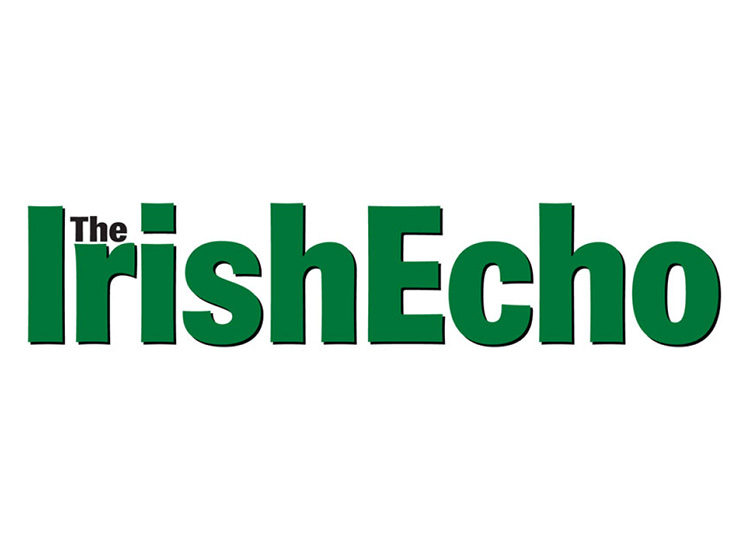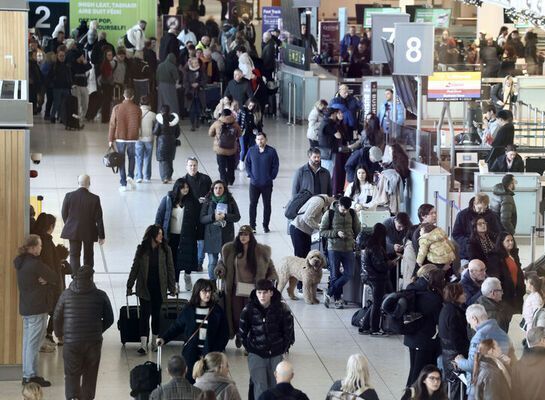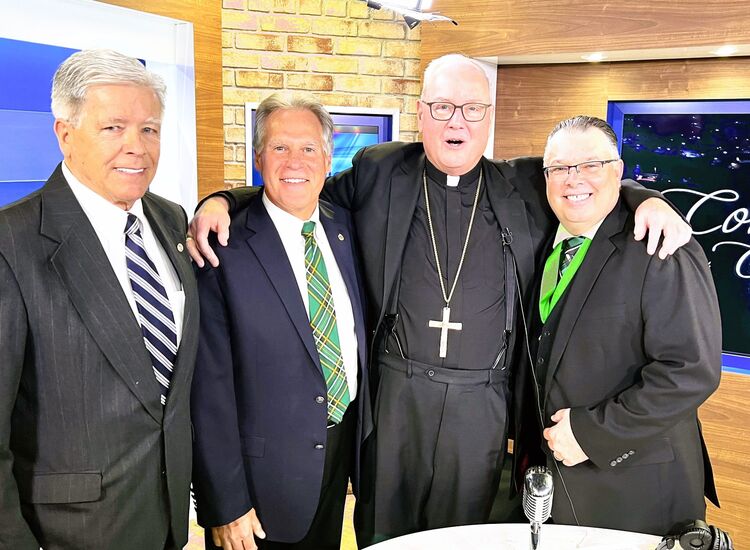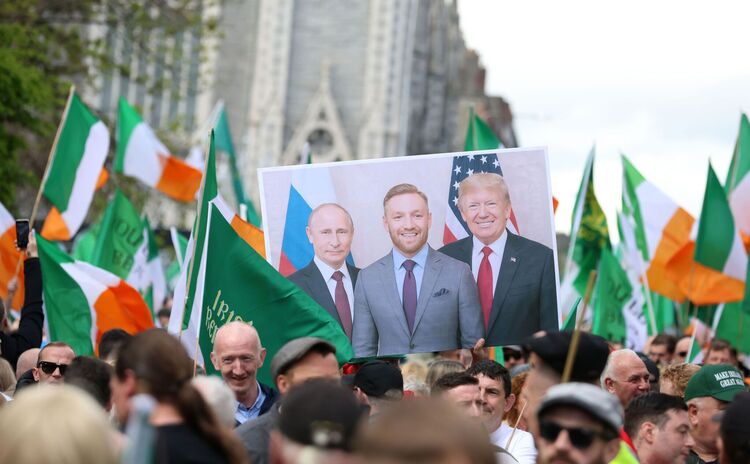[caption id="attachment_71229" align="aligncenter" width="600" caption="Croke Park minus 82,300 people."]
One day last week, Paraic Duffy, the Director General of the GAA, announced the association would soon be unveiling a new marketing plan. Not just any old marketing plan either. This will be the most comprehensive promotional effort in the history of the games.
Bold stuff.
Of course, last Sunday week, the marketing geniuses currently employed by the GAA booked cavernous Croke Park for the National League semi-finals, forcing some of the best footballers in the country to play matches before a crowd of just over 11,000. It looked and sounded like one of those behind-closed-doors games soccer teams are forced to endure after their fans wreck stadia.
The problem with GAA and marketing has always been the absence of logic.
In this case, the poor attendance was blamed on the presence of Cork and Kerry in the line-up, two counties whose fans are notorious for not traveling far for league games, even semis or finals.
Why, if the GAA knew that, would they still fix the games for a stadium that holds 82,300? Why not opt for a venue in or around Dublin that would have been attendance appropriate? A crowd of 11,000 doesn't look or sound ridiculous in Portlaoise, or even Parnell Park. By opting for Croke Park, the GAA cheapened their secondary competition and underlined again how no sporting body makes less of more than this outfit.
Walk into any bookstore in Ireland today and when you find the sports section, count how many publications there are related to the Munster rugby team, its history and its stars. Last time I checked, it was well over a dozen.
Anyway, the exact figure isn't that important. What's significant is that Munster rugby in its modern incarnation (invented in the mid-nineties) has spawned more literature than more than 125 years of Cork hurling and Gaelic football. Whose fault is that?
It's not the rugby crowd. Fair play to them for doing such a good job promoting their inferior product. It's the GAA's fault for not selling the media on the magnificence of the indigenous games.
Kilkenny may just be the greatest hurling team of all time. How many books have been written about them? It's all very well blaming publishers too. That's an easy way out. The GAA is big enough, wealthy enough, and powerful enough to have its own publishing arm. Aside from promoting the games, bringing out these books would also create jobs and make money for the association if it was done properly.
The GAA's new campaign could do a lot worse than hire away the people who've made Irish rugby matter to people who previously didn't know it existed. This might be the greatest marketing achievement in the modern era, even if some of the stuff rugby did to promote itself was borrowed from other sports.
For decades, the build-up to Cheltenham has been marked by hugely popular preview nights. I'm not sure who started the idea of packing trainers, jockeys and journalists into a venue where they could talk about the runners and riders ahead of the National Hunt festival.
All I know is that fans love those evenings and look forward to them as much as the week itself. After all, a huge part of every sport is the anticipation and the forensic analysis.
Rugby started to do something similar with a road show in recent years. Again, with huge success.
As we stand a few weeks away from the start of the championships in both codes, we wonder do the GAA have anything like this planned. All over Ireland right now, in hurling and football counties, people are sitting around at work during the day, and in bars at night, talking about their teams' chances come summer.
Can the Cork footballers sustain this form? Are the Tipp hurlers slipping faster than Kilkenny? People who are into games tend to enjoy talking about them, before, during and after the events. It's not rocket science to decide to get them to a clubhouse or hotel to do this in a public forum.
In spite of its status as the most successful association in the history of Ireland, the GAA has always been backwards about selling itself. It wasn't until Guinness came onboard in the mid-nineties that hurling ever received any sort of marketing push.
People who didn't know a hurley from a hockey stick suddenly found themselves intrigued by this weird and wonderful game popping up on billboards all over the island.
There is an even more recent example. Since Cadbury's got involved in the All-Ireland Under-21 football championship, it has grown in stature. It has garnered more column inches in papers, more media coverage on radio and television, and generally benefited hugely from the promotional arm of a major company getting behind it.
There is a reason companies like Nike and Coca Cola spent billions each year on marketing. It usually works.
The American sports have been cognizant of this fact for a long time. During any PGA Tour event, there is at least one television commercial every hour which promotes the tour itself. The ads are so prevalent that the slogan is actually stuck in our heads. These guys are good. Understated but effective, it reminds those watching from their couches that the men out there on the course are actually capable of doing things with a golf club beyond the ken of us mere mortals.
Against that background, we can't wait to see what the GAA comes up with in terms of its new marketing push. There is so much raw material for them to work with.
Of course, you don't have to be a professional marketer to come up with smart slogans to sell the games. How about these for starters? More authentic than rugby. More loyal than professional soccer. More skillful than both of the above (obviously this applies to hurling rather than Gaelic football). Hate thy neighbor (God would understand if he lived next door to Tipp or Kerry).








